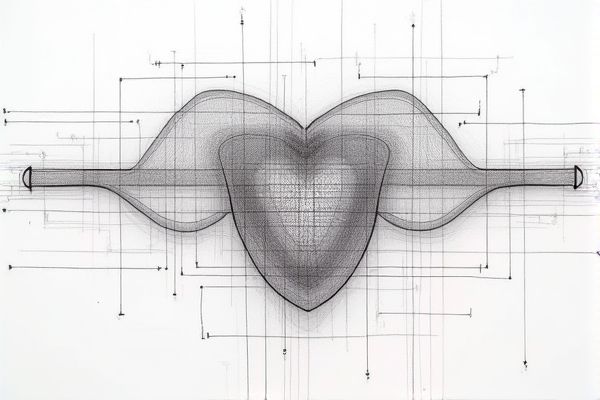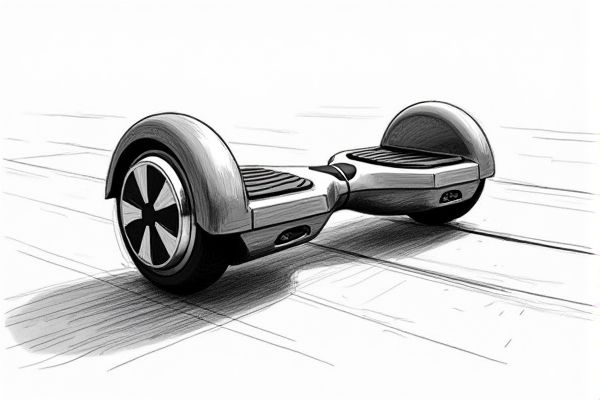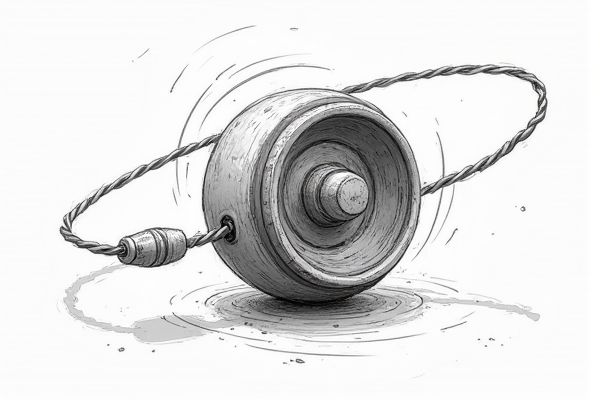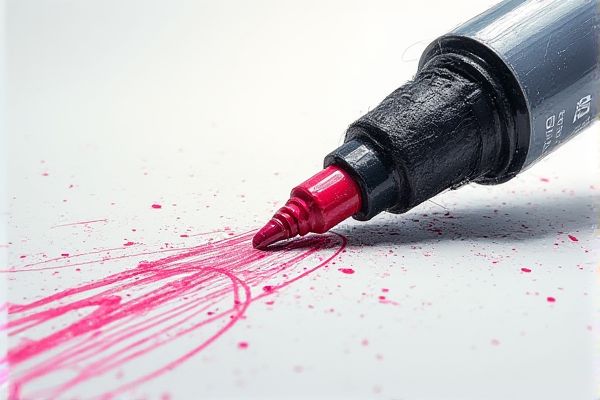In recent years, the importance of vaccination against the human papillomavirus (HPV) has become increasingly apparent, spotlighting the brands that have made significant strides in this domain. Renowned pharmaceutical companies have developed vaccines that not only offer robust protection but also boast comprehensive coverage against multiple HPV strains. These vaccines are instrumental in preventing cervical and other HPV-related cancers, making them a vital part of public health initiatives worldwide. To explore the leading brands offering HPV vaccines and their unique features, please read on below.

Illustration of hpv vaccine
Best brands of hpv vaccine in 2025
Gardasil 9
Gardasil 9, produced by Merck, is a highly effective HPV vaccine, protecting against 9 types of cancer-causing HPV (types 6, 11, 16, 18, 31, 33, 45, 52, and 58). It has demonstrated sustained immunogenicity and effectiveness through up to 10 years post-vaccination, with seropositivity rates remaining at 81% to 100% depending on the HPV type. The vaccine has been shown to prevent cervical, vulvar, vaginal, anal, oropharyngeal, and other head and neck cancers, as well as genital warts and precancerous lesions. Clinical trials have established its high efficacy, with more than 98% of recipients developing an antibody response to the included HPV types. Approved by the FDA in 2014, Gardasil 9 continues to be a leading choice in HPV vaccination. For more details, visit the official Gardasil 9 webpage.
Cervarix
Cervarix, produced by GlaxoSmithKline, is a highly effective bivalent HPV vaccine targeting types 16 and 18, responsible for the majority of HPV-caused cancers. Studies have shown that Cervarix offers 100% efficacy against 12-month persistent HPV-16/18 infection and demonstrates significant protection against cervical intraepithelial neoplasia (CIN) 2+ and CIN 3+ lesions, with efficacy rates of 94.9% and 91.7%, respectively, in the ATP cohort. The vaccine has also shown cross-protection against other cancer-causing HPV types such as 31, 33, and 45. Long-term follow-up studies indicate that even a single dose of Cervarix can provide substantial and lasting immune response against HPV infection. Cervarix has a favorable safety profile, similar to other HPV vaccines. For detailed product information, please visit the European Medicines Agency's official document.
Gardasil
Gardasil, developed by Merck, is a leading brand in the HPV vaccine market, renowned for its high efficacy in preventing HPV-related cancers and diseases. The Gardasil 9 vaccine, approved by the FDA in 2014, protects against nine types of cancer-causing HPV strains (6, 11, 16, 18, 31, 33, 45, 52, and 58), demonstrating nearly 100% efficacy against HPV 16- and 18-related cervical, vulvar, and vaginal cancers in clinical studies. The vaccine has shown a significant reduction in HPV infections, with a 56% decrease in vaccine-type HPV infections among 14-19 year-old females just four years after its introduction, and an 88% decrease within 12 years. The global market for Gardasil is projected to grow from $3.9 billion in 2022 to $11.9 billion by 2032, driven by increasing awareness and expanding vaccination programs. With over 100 million doses distributed in the U.S. from 2006 to 2017, Gardasil has established a strong safety profile through extensive monitoring and research.
Gardasil 4
Gardasil 4, the quadrivalent HPV vaccine, has been proven to be highly effective and safe, with clinical trials demonstrating a 90.4% effectiveness in reducing external genital lesions and 89.4% effectiveness in preventing genital warts, as approved by the FDA in 2006. It protects against HPV types 6, 11, 16, and 18, and has been shown to prevent precancerous lesions such as cervical intraepithelial neoplasia (CIN) 2/3. The vaccine has undergone rigorous safety testing, involving over 29,000 females and males, and has been found to be well-tolerated with most adverse events being non-serious. It has also been licensed for use in men aged 9-26 years to prevent HPV-related genital warts. The vaccine's efficacy has been consistently high across various studies, making it a crucial tool in HPV prevention. For more information on the vaccine, visit the CDC's official page on HPV vaccines.
Silgard
Silgard, known as Gardasil in some markets, is a highly efficacious HPV vaccine produced by Merck, demonstrating exceptional protection against HPV types 6, 11, 16, and 18. It has shown an efficacy of 95.9% against HPV 6-, 11-, 16-, 18-related CIN 1 and 96.0% against HPV 6-, 11-, 16-, 18-related CIN (1, 2, 3) or AIS. The vaccine also provides 99.0% protection against genital warts caused by these HPV types. Since its introduction, Silgard has been widely acclaimed for reducing the incidence of cervical, vulvar, and vaginal cancers, as well as genital warts, with significant market growth, such as Merck's Gardasil sales increasing from $1.9 billion in 2015 to $3.7 billion in 2019. The vaccine's effectiveness has been consistently supported by clinical trials and real-world data. For more detailed information, you can refer to the Gardasil prescribing information on Merck's website.
Cervavac
HPV vaccines, such as those produced by Merck (Gardasil and Gardasil 9), have been proven to be highly effective in preventing cervical cancer and other HPV-related diseases. These vaccines protect against several high-risk HPV types, including 16 and 18, which cause about 70% of cervical cancer cases. Since their introduction in 2006, HPV vaccines have led to a significant reduction in HPV infections and cervical pre-cancers, with an 88% drop among teen girls and an 81% drop among young adult women. The vaccines have also shown long-lasting protection, with no evidence of decreasing effectiveness over at least 12 years. The CDC and WHO recommend HPV vaccination as a crucial measure in preventing cervical cancer and other HPV-related cancers.
DafneBiotech HPV Vaccine
Therapeutic HPV vaccines, currently in development, represent a significant innovation in the fight against cervical cancer. Over 20 therapeutic HPV vaccine candidates are in various stages of development, with several in clinical trials. These vaccines aim to boost the body's immune response to clear high-risk HPV strains or treat precancerous cells, particularly beneficial for adult women who did not receive preventive HPV vaccination. The World Health Organization (WHO) emphasizes the need for these vaccines to be accessible in low- and middle-income countries, where over 90% of cervical cancer-related deaths occur. By 2030, WHO aims to vaccinate 90% of girls with preventive HPV vaccines and screen 70% of women with high-performance tests. For more details on the progress of these vaccines, visit the World Health Organization's announcement.
PreventAse
The HPV vaccine, particularly those produced by well-established manufacturers like Merck and GlaxoSmithKline, has been proven highly effective in preventing cervical cancer and other HPV-related cancers. A large study in Sweden showed a nearly 90% reduction in cervical cancer incidence among girls vaccinated before age 17. The vaccine also reduces the risk of HPV-associated cancers in men by 50%, including oropharyngeal cancers. Global demand for HPV vaccines has been increasing, with UNICEF procuring millions of doses annually, though supply constraints have been a challenge. Despite these challenges, new manufacturers and increased production capacity are expected to meet global demand in the near future. For more updates on the vaccine's supply and demand, visit the UNICEF report.
Neosmart HPV
The global HPV vaccine market is dominated by well-established brands such as Merck's Gardasil, which holds a significant share. For instance, in 2019, the quadrivalent HPV vaccine (Gardasil-4) occupied an estimated 60% of market share by volume, followed by the nonavalent vaccine (Gardasil-9) with 30%. These vaccines have demonstrated high efficacy and effectiveness in preventing cervical cancer, primarily caused by HPV types 16 and 18. The market value of HPV vaccines is substantial, representing about 15% of the global vaccine market value despite constituting only about 2% of the volume. The demand for HPV vaccines is projected to rise, with global country demand potentially reaching 120 million doses per year by 2030. For more detailed insights, you can view the HPV supply and demand update report by UNICEF.
Inovio's DNA Vaccine
Inovio's DNA vaccine, particularly VGX-3100, has shown promising results in treating HPV-associated cervical dysplasia, with the REVEAL 1 trial demonstrating that 27.6% of recipients met the primary endpoint of lesion regression and viral clearance, significantly outperforming the placebo group at 8.7%. Additionally, INO-3107 has been effective in reducing surgical interventions for recurrent respiratory papillomatosis, with 81.3% of patients requiring fewer surgeries and 28.1% needing no surgeries after treatment. These vaccines utilize Inovio's proprietary CELLECTRA(r) 5PSP device and have been recognized for their immunological benefits, including inducing targeted T-cell responses against HPV types 6 and 11. The vaccines have also been well-tolerated, with common adverse events related to administration such as injection site pain and fatigue. Inovio's advancements in DNA medicines represent a significant step forward in treating HPV-related diseases. For further information, visit their news release.
















Leave a Reply
Your email address will not be published.